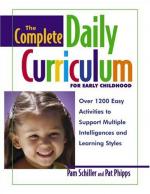|
This section contains 420 words (approx. 2 pages at 300 words per page) |

|
Theories on Multiple Intelligences
Summary: "The Foundations of the Theory of Multiple Intelligences" by Thomas Armstrong explains the creation of multiple intelligence theory. Eighty years after the first intelligence quotient test was developed, psychologist Howard Gardner redefined the intelligence test into seven specific types of intelligence: linguistic, logical-mathematical, spatial, bodily-kinesthetic, musical, interpersonal, and intrapersonal.
In the article, "The Foundations of the Theory of Multiple Intelligences", by Thomas Armstrong, he explains the creation of multiple intelligence theory. The first intelligence test (or IQ) was established by Alfred Binet, a French psychologist, in relevance for failing students to succeed in college. After eighty years had passed another psychologist, Howard Gardner, begin to debate the thoughts and perceptions of Alfred Binet and redefine the intelligence test into seven specific areas of life. Linguistic, logical-mathematical, spatial, bodily-kinesthetic, musical, interpersonal, and intrapersonal were the seven main views of the IQ test that test the level of understanding for each person. In addition to this, all of these seven areas were not meant for everybody to excel in or to understand. Intelligences were sometimes used together to complete one task such as washing clothes. First you have to a visual amount of clothes that can fit into the...
|
This section contains 420 words (approx. 2 pages at 300 words per page) |

|


